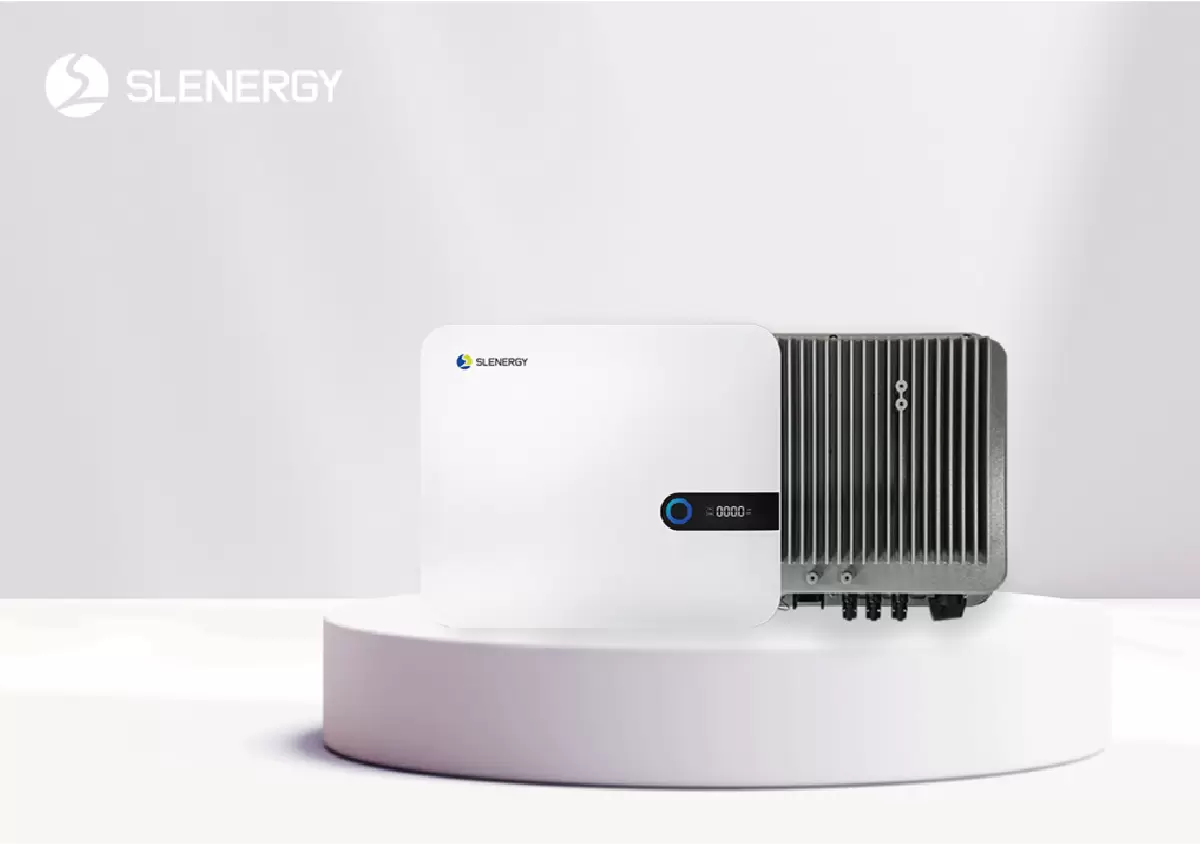As the world increasingly turns towards sustainable energy solutions, household solar energy systems have gained immense popularity. These systems not only contribute to reducing carbon footprints but also provide a cost-effective means of electricity generation. Among the various components that constitute a household solar energy system, SLENERGY on-grid inverters play a pivotal role.

Understanding On-Grid Inverters
What are On-Grid Inverters?
On-grid inverters are essential devices in solar energy systems connected to the public utility grid. Their primary function is to convert the direct current (DC) electricity produced by solar panels into alternating current (AC) electricity, which is the standard form of electricity used in homes and businesses.
How Do They Work?
The working principle of an on-grid inverter is relatively straightforward. Solar panels capture sunlight and convert it into DC electricity. This DC electricity is then fed into the inverter, which uses electronic circuitry to switch the DC power on and off rapidly, creating an AC waveform that mimics the sine wave of electricity supplied by the grid. This process ensures compatibility with household appliances and the grid itself.
Key Functions of On-Grid Inverters
Synchronization with the Grid
One of the most critical functions of an on-grid inverter is synchronization with the utility grid. The inverter constantly monitors the grid's frequency and voltage to ensure seamless integration. In the event of a power outage, the inverter disconnects from the grid to prevent backfeeding, which is a safety measure to protect linemen working on the grid.
Energy Management
On-grid inverters are equipped with advanced energy management features. They can monitor the amount of electricity generated by solar panels and the household's consumption patterns. When the solar system produces more energy than the household consumes, the excess is fed back into the grid, and the homeowner may receive credits from the utility company. Conversely, if the solar panels do not produce enough energy, the inverter draws power from the grid to meet the household's needs.
Efficiency and Reliability
Efficiency is another hallmark of modern on-grid inverters. High-efficiency inverters minimize energy loss during the conversion process, ensuring that as much of the solar-generated electricity as possible is utilized. Reliability is equally important, as inverters are designed to operate continuously for many years with minimal maintenance.
Benefits of On-Grid Inverters in Household Solar Systems
Cost Savings
One of the most apparent benefits of on-grid inverters is cost savings. By enabling the sale of excess electricity back to the grid, homeowners can offset the initial investment in their solar system more quickly. Additionally, the reduction in electricity bills from using solar power directly contributes to long-term savings.
Environmental Impact
The environmental benefits of utilizing on-grid inverters in household solar systems cannot be overstated. By converting sunlight into usable electricity, these systems significantly reduce reliance on fossil fuels, thereby lowering greenhouse gas emissions. This contributes to combating climate change and promoting a cleaner, greener planet.
Grid Support and Energy Independence
On-grid inverters play a crucial role in supporting the grid during peak demand periods. When many households are using electricity simultaneously, the grid can become stressed. Solar systems with on-grid inverters alleviate this pressure by providing additional power, enhancing grid stability. Moreover, having a solar system with an on-grid inverter offers a degree of energy independence, as households are less reliant on the grid during sunny days.
Technological Advancements
The ongoing technological advancements in on-grid inverters are opening up new possibilities. Smart inverters, for instance, can communicate with the grid and other devices within the home, optimizing energy use further. They can also provide real-time data on energy production and consumption, enabling homeowners to make more informed decisions about their energy use.
Conclusion
In conclusion, on-grid inverters are indispensable components of household solar energy systems. Their ability to convert DC electricity into AC, synchronize with the grid, manage energy efficiently, and contribute to cost savings and environmental benefits makes them a cornerstone of modern solar installations. As technology continues to evolve, SLENERGY on-grid inverters will only become more sophisticated, further enhancing the performance and benefits of residential solar energy systems. By embracing these advancements, households can take a significant step towards a more sustainable and energy-independent future.
https://www.slenergy.com/
Slenergy Technology (A.H.) Co., Ltd.